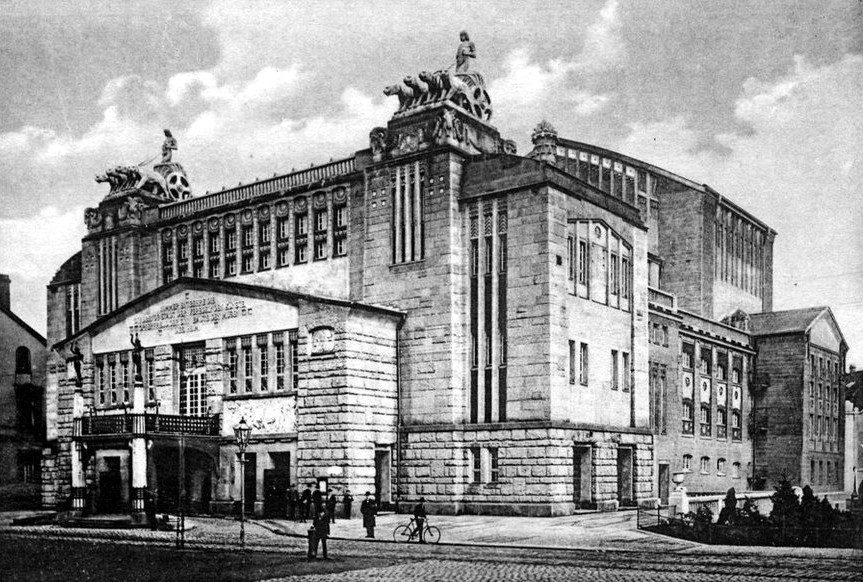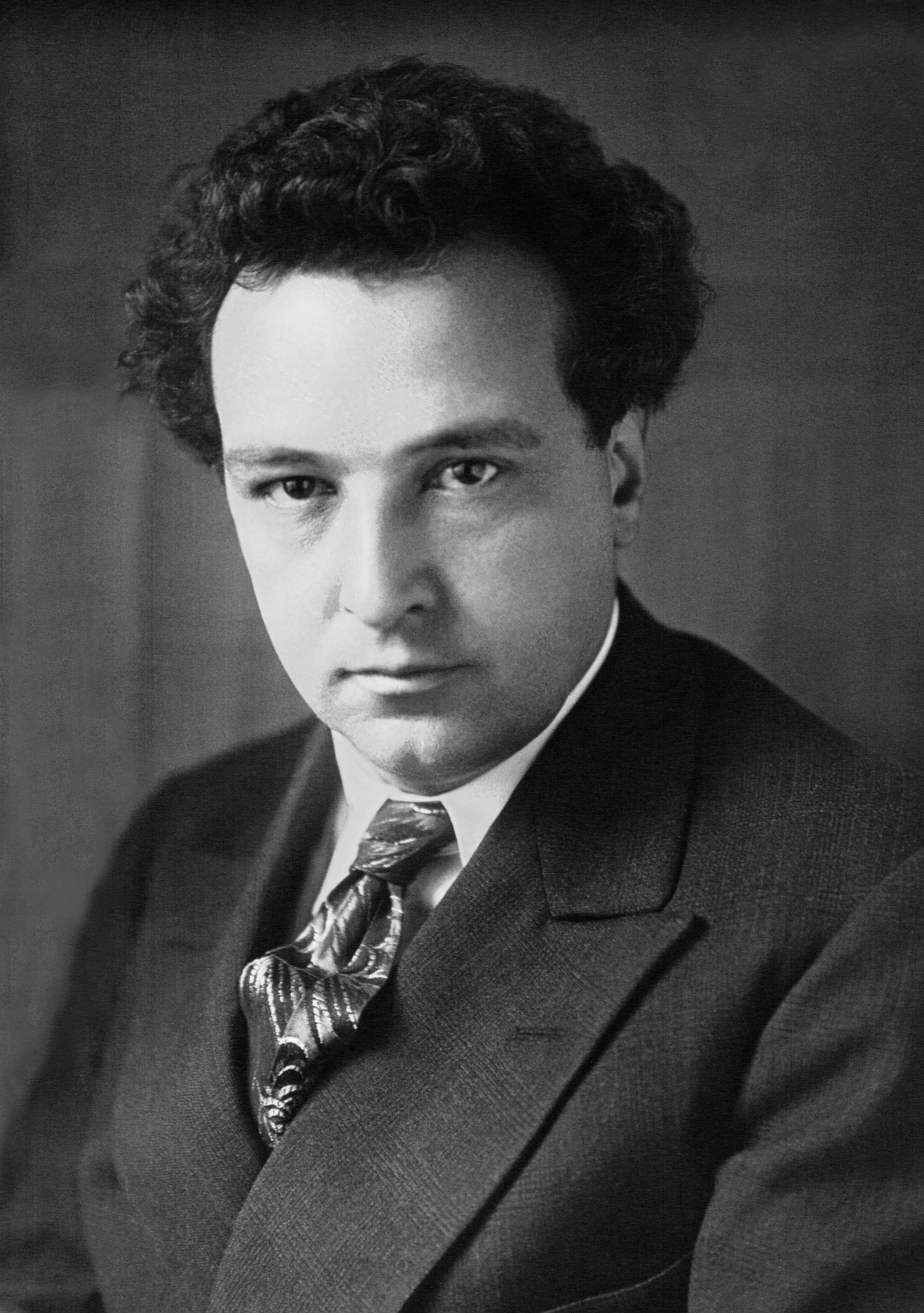|
Paula Murrihy
Paula Murrihy is an Irish people, Irish operatic mezzo-soprano who has made an international career. A member of the Oper Frankfurt, she has appeared also in Europe and the US, including the Metropolitan Opera and the Santa Fe Opera. Career Born in County Kerry, Murrihy first studied at the Dublin Institute of Technology Conservatory of Music and Drama in Dublin, graduating with a Bachelor in Music. She studied further at the New England Conservatory. She took part in the Britten-Pears Young Artist Programme and the opera studio of the Santa Fe Opera. She also studied on a scholarship of the San Francisco Opera in the Merola Opera Program. She participated in Tanglewood in the 2003 Vocal Fellowship Program, appearing in the premiere of Osvaldo Golijov's opera ''Ainadamar'', which she then also performed at Disney Hall with the Los Angeles Philharmonic. Murrihy joined the ensemble of the Oper Frankfurt in 2009, where she performed the title roles of Bizet's ''Carmen'' and ''Der ... [...More Info...] [...Related Items...] OR: [Wikipedia] [Google] [Baidu] |
County Kerry
County Kerry ( gle, Contae Chiarraí) is a county in Ireland. It is located in the South-West Region and forms part of the province of Munster. It is named after the Ciarraige who lived in part of the present county. The population of the county was 155,258 at the 2022 census, A popular tourist destination, Kerry's geography is defined by the MacGillycuddy's Reeks mountains, the Dingle, Iveragh and Beara peninsulas, and the Blasket and Skellig islands. It is bordered by County Limerick to the north-east and Cork County to the south and south-east. Geography and subdivisions Kerry is the fifth-largest of Ireland's 32 traditional counties by area and the 16th-largest by population. It is the second-largest of Munster's six counties by area, and the fourth-largest by population. Uniquely, it is bordered by only two other counties: County Limerick to the east and County Cork to the south-east. The county town is Tralee although the Catholic diocesan seat is Killarney, whi ... [...More Info...] [...Related Items...] OR: [Wikipedia] [Google] [Baidu] |
The Magic Flute
''The Magic Flute'' (German: , ), K. 620, is an opera in two acts by Wolfgang Amadeus Mozart to a German libretto by Emanuel Schikaneder. The work is in the form of a ''Singspiel'', a popular form during the time it was written that included both singing and spoken dialogue. The work premiered on 30 September 1791 at Schikaneder's theatre, the Freihaus-Theater auf der Wieden in Vienna, just two months before the composer's premature death. Still a staple of the opera repertory, its popularity was reflected by two immediate sequels, Peter Winter's ''Das Labyrinth oder Der Kampf mit den Elementen. Der Zauberflöte zweyter Theil'' (1798) and a fragmentary libretto by Johann Wolfgang von Goethe titled ''The Magic Flute Part Two''. The allegorical plot was influenced by Schikaneder and Mozart's interest in Freemasonry and concerns the initiation of Prince Tamino. Enlisted by the Queen of the Night to rescue her daughter Pamina from the high priest Sarastro, Tamino comes to a ... [...More Info...] [...Related Items...] OR: [Wikipedia] [Google] [Baidu] |
Le Nozze Di Figaro
''The Marriage of Figaro'' ( it, Le nozze di Figaro, links=no, ), K. 492, is a ''commedia per musica'' (opera buffa) in four acts composed in 1786 by Wolfgang Amadeus Mozart, with an Italian libretto written by Lorenzo Da Ponte. It premiered at the Burgtheater in Vienna on 1 May 1786. The opera's libretto is based on the 1784 stage comedy by Pierre Beaumarchais, '' La folle journée, ou le Mariage de Figaro'' ("The Mad Day, or The Marriage of Figaro"). It tells how the servants Figaro and Susanna succeed in getting married, foiling the efforts of their philandering employer Count Almaviva to seduce Susanna and teaching him a lesson in fidelity. Considered one of the greatest operas ever written, it is a cornerstone of the repertoire and appears consistently among the top ten in the Operabase list of most frequently performed operas. In 2017, BBC News Magazine asked 172 opera singers to vote for the best operas ever written. ''The Marriage of Figaro'' came in first out of ... [...More Info...] [...Related Items...] OR: [Wikipedia] [Google] [Baidu] |
Teodor Currentzis
Teodor Currentzis ( el, Θεόδωρος Κουρεντζής ; born 24 February 1972) is a Greek-Russian conductor, musician and actor. Biography Currentzis was born in Athens, and at age 4 began to take piano lessons. At age 7, he began violin lessons. He entered the National Conservatory, Athens at the age of 12, in the violin department. In 1987, aged 15, he began composition studies under Professor George Hadjinikos, and then in 1989 under Professor B. Shreck. From 1994 to 1999, Currentzis studied conducting supported by a scholarship from the Alexander S. Onassis Public Benefit Foundation in the St. Petersburg State Conservatory with Ilya Musin. From 2004 to 2010, Currentzis served as principal conductor of the Novosibirsk Opera and Ballet Theatre, where in 2004 he founded the Orchestra MusicAeterna and later the Chorus MusicAeterna. In 2009, Currentzis acted in Ilya Khrzhanovsky's film '' Dau'' (''russian: Дау'') based on the biography of the physicist Lev Lan ... [...More Info...] [...Related Items...] OR: [Wikipedia] [Google] [Baidu] |
Konzerthaus Dortmund
Theater Dortmund is a theatrical organization that produces operas, musicals, ballets, plays, and concerts in Dortmund, Germany. It was founded as the Stadttheater Dortmund in 1904. Supported by the German Government, the organization owns and operates several performance spaces. In 2010 the Ruhr district was a European Capital of Culture, Theater Dortmund is a partner of the related program ''RUHR.2010'' in the fields ''Music'' and ''Theater and Dance''.Dortmund at RUHR2010, including ''Musik'' and ''Theater und Tanz'' (in German) Stadttheater Dortmund [...More Info...] [...Related Items...] OR: [Wikipedia] [Google] [Baidu] |
Alcina
''Alcina'' ( HWV 34) is a 1735 opera seria by George Frideric Handel. Handel used the libretto of ''L'isola di Alcina'', an opera that was set in 1728 in Rome by Riccardo Broschi, which he acquired the year after during his travels in Italy. Partly altered for better conformity, the story was originally taken from Ludovico Ariosto's ''Orlando furioso'' (like those of the Handel operas ''Orlando'' and ''Ariodante''), an epic poem. The opera contains several musical sequences with opportunity for dance: these were composed for dancer Marie Sallé. Performance history ''Alcina'' was composed for Handel's first season at the Theatre Royal, Covent Garden in London. It premiered on 16 April 1735. Like the composer's other works in the opera seria genre, ''Alcina'' fell into obscurity; after a revival in Brunswick in 1738 it was not performed again until a production in Leipzig in 1928. The Australian soprano Joan Sutherland sang the role in a production by Franco Zeffirelli in wh ... [...More Info...] [...Related Items...] OR: [Wikipedia] [Google] [Baidu] |
Die Fledermaus
' (, ''The Flittermouse'' or ''The Bat'', sometimes called ''The Revenge of the Bat'') is an operetta composed by Johann Strauss II to a German libretto by Karl Haffner and Richard Genée, which premiered in 1874. Background The original literary source for ' was ' (''The Prison''), a farce by German playwright Julius Roderich Benedix that premiered in Berlin in 1851. On 10 September 1872, a three-act French vaudeville play by Henri Meilhac and Ludovic Halévy, ', loosely based on the Benedix farce, opened at the Théâtre du Palais-Royal. Meilhac and Halévy had provided several successful libretti for Offenbach and ''Le Réveillon'' later formed the basis for the 1926 silent film '' So This Is Paris'', directed by Ernst Lubitsch. Meilhac and Halévy's play was soon translated into German by Karl Haffner (1804–1876), at the instigation of Max Steiner, as a non-musical play for production in Vienna. The French custom of a New Year's Eve ''réveillon'', or supper party ... [...More Info...] [...Related Items...] OR: [Wikipedia] [Google] [Baidu] |
Claudia Barainsky
Claudia Barainsky (born 30 September 1965) is a German operatic soprano. She has performed internationally, and won awards for her roles in contemporary operas such as Bernd Alois Zimmermann's ''Die Soldaten'' and Aribert Reimann's ''Medea''. Career Born in Berlin, Barainsky studied at the Hochschule der Künste with Ingrid Figur. She took classes with Dietrich Fischer-Dieskau and Aribert Reimann. At the beginning of her career, she appeared in concerts at festivals such as Sommerliche Musiktage Hitzacker, Internationale Maifestspiele Wiesbaden, the Schubertiade in Feldkirch, and the Wittener Tage für neue Kammermusik. She made her stage debut in 1993 at the Stadttheater Bern as Konstanze in Mozart's ''Die Entführung aus dem Serail''. A year later, she sang there the title role of Alban Berg's ''Lulu''. She appeared in the title role of Aribert Reimann's ''Melusine'' at the Semperoper in Dresden. She performed at the Deutsche Oper am Rhein in 1995 the parts of Sophie in ''De ... [...More Info...] [...Related Items...] OR: [Wikipedia] [Google] [Baidu] |
Medea (Reimann)
''Medea'' is a German-language opera by Aribert Reimann after the play by Franz Grillparzer. It was premiered at the Vienna State Opera in February 2010. The German premiere was at the Oper Frankfurt in August 2010. History Aribert Reimann had already written seven literary operas, including ''Melusine'', ''Lear'' and ''Troades'', when he received a commission from the Vienna State Opera to write an opera for the conclusion of the era of Ioan Holender as General Director of the opera house. He chose the play ''Medea'' by Franz Grillparzer as a basis for the work, the last part of Grillparzer's trilogy ' (''The Golden Fleece'') which is focused on Greek mythology and based on the ''Argonautica'' by Apollonius of Rhodes and ''Medea'' by Euripides. The opera was successfully premiered at the Vienna State Opera in February 2010, staged by Marco Arturo Marelli, conducted by Michael Boder, with Marlis Petersen in the title role. The German premiere was at the Oper Frankfurt in Augu ... [...More Info...] [...Related Items...] OR: [Wikipedia] [Google] [Baidu] |
Arthur Honegger
Arthur Honegger (; 10 March 1892 – 27 November 1955) was a Swiss composer who was born in France and lived a large part of his life in Paris. A member of Les Six, his best known work is probably ''Antigone'', composed between 1924 and 1927 to the French libretto by Jean Cocteau based on the tragedy ''Antigone'' by Sophocles. It premiered on 28 December 1927 at the Théâtre Royal de la Monnaie with sets designed by Pablo Picasso and costumes by Coco Chanel. However, his most frequently performed work is probably the orchestral work ''Pacific 231'', which was inspired by the sound of a steam locomotive. Biography Born Oscar-Arthur Honegger (the first name was never used) to Swiss parents in Le Havre, France, he initially studied harmony with Robert-Charles Martin (to whom he dedicated his first published work and violin in Le Havre. After studying for two years at the Zurich Conservatory, he enrolled in the Paris Conservatoire from 1911 to 1918, studying with both Charl ... [...More Info...] [...Related Items...] OR: [Wikipedia] [Google] [Baidu] |
Hänsel Und Gretel (opera)
''Hansel and Gretel'' (German: ') is an opera by nineteenth-century composer Engelbert Humperdinck, who described it as a ' (fairy-tale opera). The libretto was written by Humperdinck's sister, Adelheid Wette, based on the Grimm brothers' fairy tale "Hansel and Gretel". It is much admired for its folk music-inspired themes, one of the most famous being the "" ("Evening Benediction") from act 2. The idea for the opera was proposed to Humperdinck by his sister, who approached him about writing music for songs that she had written for her children for Christmas based on "Hansel and Gretel". After several revisions, the musical sketches and the songs were turned into a full-scale opera. Humperdinck composed ''Hansel and Gretel'' in Frankfurt in 1891 and 1892. The opera was first performed in the Hoftheater in Weimar on 23 December 1893, conducted by Richard Strauss. It has been associated with Christmas since its earliest performances and today it is still most often performed at ... [...More Info...] [...Related Items...] OR: [Wikipedia] [Google] [Baidu] |
_2.jpg)






